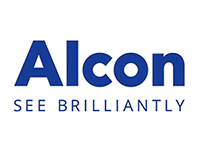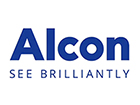
FORT WORTH, Texas—Global eyecare company Alcon is taking steps to relocate two manufacturing lines from Europe to its longstanding U.S. headquarters in Fort Worth, Texas, the company told VMAIL. The Fort Worth City Council recently voted to okay an incentive package of up to $6 million to support a possible expansion as part of an economic development program agreement that is still being finalized between the two entities. The move could bring an estimated $186 million investment and 241 new full-time jobs to the city. The agreement also states that in order for Alcon to unlock the full incentive amount, it would need to invest at minimum the $186 million by the end of 2028, including $68 million in property improvements and $118 million in new equipment. Alcon stated that it will be expanding capabilities at its two existing Fort Worth campus manufacturing facilities.
Alcon told VMAIL that the two, third-party contracted manufacturing lines in Europe were located in Belgium and in France, with one supporting the surgical side of the business and the other supporting its vision care segment.
“Founded in Fort Worth more than 75 years ago, Alcon has a long track-record of working closely with the city to promote economic growth, create good jobs, and expand the local bioscience industry,” said Steven Smith, Alcon global director of external communications. “As we continue to optimize our global eyecare manufacturing footprint, we appreciate the support of the Fort Worth City Council for our intent to bring additional production capabilities and manufacturing employment to Fort Worth. We look forward to completing a definitive agreement with the city.”
The incentives have been approved; however, the agreement between Alcon and the city of Forth Worth is still being finalized. “While we cannot speculate on a timeline for a final agreement, we’re actively working with the city to reach that goal,” said Alcon’s Smith.
Alcon advised VMAIL that the potential manufacturing move was not solely facilitated by the impact of ongoing tariffs. Instead, the company stressed that the move is part of its ongoing manufacturing optimization and is part of its overall strategy.

